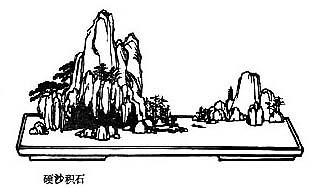Sun Zi 
 – The Art of War
– The Art of War
Chinese strategy explained : know yourself and the ennemy, use deception, spies, and "win with ease". Tr. Giles (en, annotated) and Amiot (fr).
The Attack By Fire
Rather more than half the chapter (SS. 1-13) is devoted to the subject of fire, after which the author branches off into other topics.
Sunzi XII. 14.
Anger may in time change to gladness; vexation may be succeeded by content.
But a kingdom that has once been destroyed can never come again into being;1 nor can the dead ever be brought back to life.
Giles XII.20,21.
Ce sont les intérêts du pays et non pas vos intérêts personnels que vous défendez. Vos vertus et vos vices, vos belles qualités et vos défauts rejaillissent également sur ceux que vous représentez. Vos moindres fautes sont toujours de conséquence ; les grandes sont souvent irréparables, et toujours très funestes. Il est difficile de soutenir un royaume que vous aurez mis sur le penchant de sa ruine ; il est impossible de le relever, s'il est une fois détruit : on ne ressuscite pas un mort.
Amiot

The Art of War – Sun Zi XII. 14. – Chinese off/on – Français/English
Alias Sun Tzu, Sun Wu, Sun Tse, Sunzi Bingfa, Souen Tseu, Souen Wou, 孫武.
The Book of Odes, The Analects, Great Learning, Doctrine of the Mean, Three-characters book, The Book of Changes, The Way and its Power, 300 Tang Poems, The Art of War, Thirty-Six Strategies
Welcome, help, notes, introduction, table.
Index – Contact – Top
